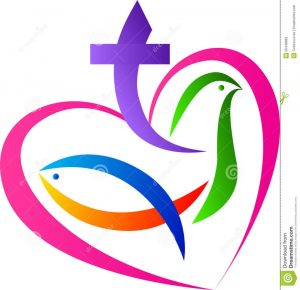 Palm Sunday Year B
Palm Sunday Year B
Palm Sunday: Gospel for Blessing of Palms.
Mark 11:1-10
Vs.1. When they were approaching Jerusalem, in sight of Bethphage and Bethany, close by the Mount of Olives, he sent two of his disciples
Vs.2 and he said to them, “Go off into the village facing you, and as soon as you enter it you will find a tethered colt that no one has yet ridden. Untie it and bring it here.
Vs.3 “If anyone says to you, ‘what are you doing?’ say, ‘The Master needs it and will send it back to you directly’.”
Vs.4 They went off and found a tethered colt near a door in the open street. As they untied it,
Vs.5 some men standing there said, “What are you doing, untying that colt?”
Vs.6 They gave the answer Jesus had told them, and the men let them go.
Vs.7 Then they took the colt to Jesus and threw their cloaks on its back, and he sat on it.
Vs.8 Many people spread their cloaks on the road, others greenery which they had cut in the fields.
Vs.9 And those who went in front and those who followed behind were all shouting, “Hosanna! Blessings on him who comes in the name of the Lord.
Vs.10 Blessings on the coming kingdom of our father David! Hosanna in the highest heavens!”
Historical Situation for Palm Sunday Year B–
The Entry into Jerusalem –
The entry into Jerusalem was a significant event in the last week of Jesus’ life and also for the early Christian communities. It is recorded in all four Gospels. To enter deeply into this passage a little Old Testament background knowledge is helpful. Although Mark does not make a direct reference to the Old Testament the references are implicit in the text and the early Christians with their knowledge of scripture would have recognized and understood these.
When Jesus entered Jerusalem he enacted symbolically a prophesy from Zechariah 9: 9-10
“Rejoice heart and soul daughter of Zion. See how he comes, he is victorious; he is humble and riding on a donkey, on a colt. He will banish chariots. And horses from Jerusalem. The bow of war will be banished. He will proclaim peace for the nations..
The message was clear. God is coming to save you with power that is humble and victorious.. The donkey was a placid, lower, less physically powerful animal than the horse. It was the traditional mount of Jewish Kings. The horse was the symbol of power and pomp, of warfare and Roman oppression. Zechariah looked forward to the future coming of a very different king. This King would be a humble peace maker. The way of Jesus was one of trust, humility, gentleness and non-violence. Jesus was convinced that these values would ultimately triumph and he would “draw all men to himself”. He freely and consciously chose to enter Jerusalem as the King prophesied by Zechariah.
The cries of the crowd were taken from Psalm 118: 25-29.
“…Blessed in the name of the Lord is he who comes.. Go forward in procession with branches. You are my God I thank you, my God I praise you.,
Psalm 118 was one of a series of ancient psalms sung to celebrate the annual ritual entry of the Jewish kings first into the city and then into the Temple. Over time they were traditionally sung by pilgrims to Jerusalem as part of the liturgy of great festivals as they entered the temple. In this case the crowds saw the hope expressed in the psalm about to be realized in Jesus the new King..
Where did this take place? This took place in a small village on the top of the Mount of Olives from where Jesus would begin his descent and entry into Jerusalem. And Jerusalem was the centre of political and religious life, where Jesus was sure that a hostile reception awaited him. Going into Jerusalem was like going into the lion’s den.
When did this happen?
This was at the beginning of the last week in Jesus’ life. It was a critical moment. As throughout his mission in Galilee Jesus is intent on challenging the abusive, exploitive and oppressive powers that be and inviting people to enter into the coming of a new kingdom of God’s mercy, justice and peace. We see the spirituality of Jesus whose total trust in the Father gives him the confidence to make this journey. He is strong at this point, confirmed in his mission.
Who was there? Jesus; his disciples (taking orders from Jesus but probably not too sure what he was up too; the people standing near the colt (part of a network of friends and associates that Jesus had in the area, the pilgrims who were there for the Passover ( who were greatly impressed by Jesus and what he stood for).
What happened?
V1-3: Jesus sends his disciples ahead to find a colt. The colt was there chosen for this mission. No one had ever ridden it…something new is about to happen. It would be returned when it had served its purpose. Jesus had his contacts who were willing to help him. “The Lord needs it and will send it back”
V4- 6: the people who provided the colt were ready to make their contribution to the unfolding event without fuss once they knew it was for Jesus.
V7-8: the spreading of the cloaks and the mounting of the donkey were deliberate actions – fulfilling the prophecies mentioned already. The pilgrims who cut the branches would have been camping wherever they could find a suitable place – on the hills around the Mount of Olives. The branches would have been plentiful.
V9-10: the people shouted “Hosanna” (meaning Praise) . They have a sense of a new kind of King and so they are rejoicing and celebrating. They are expressing their faith in God’s reign.
Interesting to note that the Jesus of Palm Sunday is the same as Jesus of Holy Thursday, of good Friday – trusting in the father, inwardly strong, determined, humble, gentle, peaceful, courageous, loving to the end.
GUIDELINES FOR MEDITATION.
Can you remember a time when we (as individuals, family, church, society etc.), made our own approach to “Jerusalem” – a place where we knew there would be opposition, rejection and even violence. And we chose to enter into that place trusting in the power of love, the power of of humility, patience, gentleness and non-violence – “riding on a donkey” – confident that this approach (and not more violence!) would bring a real, deep and lasting peace to our family, community or world?
Can we identify from experience unassuming people in our lives(Friends, associates, neighbours) whom we know we can count on to provide “the tethered colt” when needed, and are content to remain in the background?
Can we remember an experience of someone special coming into our lives and we responded by “throwing of our cloak” – all the old inhibitions and self-consciousness, or need to cover up, and we found a new freedom to be ourselves and to express all that was in our heart “Hosanna in the highest heavens”?
Can we remember a time when someone of special character and reputation came into our family, parish, community or country and we were filled with a tremendous hope and joy because in our heart of hearts we just knew that a great time of blessing was at hand for everybody?
And so we were ready to give our all “to throw our cloaks on its back”, and “to spread the greenery we had cut in the fields,” and to shout in celebration “Hosanna in the highest heavens”.
